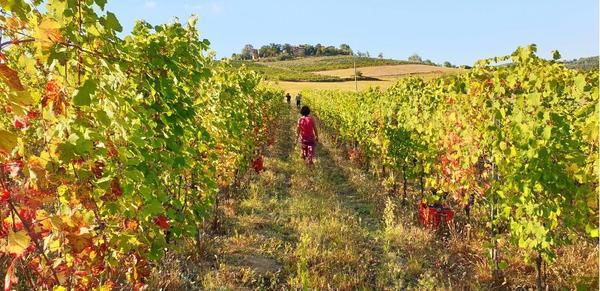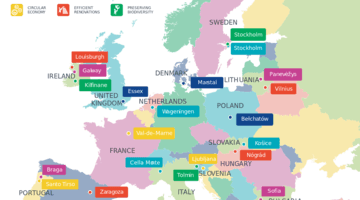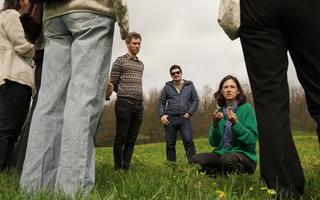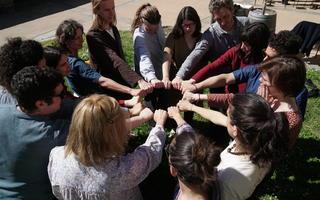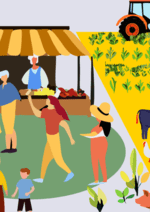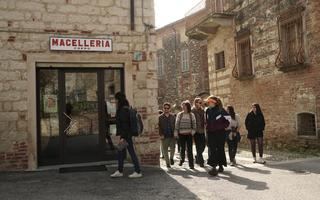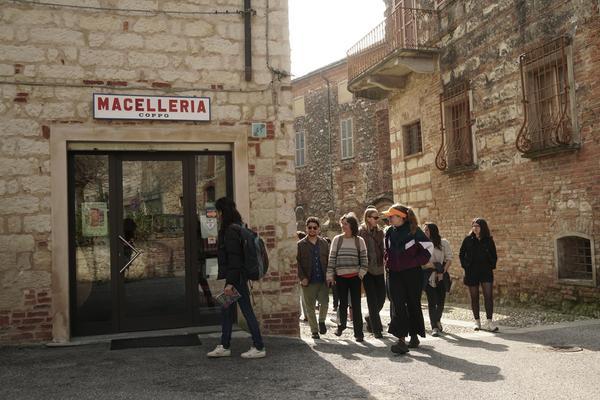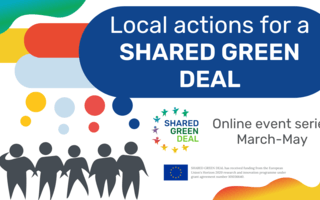Local Change towards More Sustainable food production
The Green Deal aims at reducing pesticide risk. The Local Change towards More Sustainable food production (LOCoMOS) social experiment recruited local food producers and citizens characterised by a change-maker attitude and young age to disentangle the pesticide issue. They sought to identify the barriers and needs of the grassroot local community, set priorities and implement locally-feasible strategies to reduce pesticide health risks for humans, pollinators, and the environment overall.
Local context
The area involved has been included (since 2014) in the Unesco zone “Monferrato degli Infernot” which is characterised by small underground chambers (“Infernot”) used to store wine. Monferrato’s landscape is the testimony of the European winemaking tradition. It is hilly with heterogeneous cultivations: hazelnuts and olives, cereals, fruit and vegetable gardens, truffle grounds and vineyards as well as natural woods valleys. Small scale beekeeping is also present. The local community lives in small historical villages. Small to medium farms and the agrotourism sector are the main drivers of the local economy. Many young farmers are taking the place of old generations, driven by a desire for innovation, and sustainable food production.
Specific needs and challenges
The local food system needs to move to a more sustainable food system while preserving the social and economic sustainability of local food production. Farmers highly depend on pesticide as a solution for plant pests. At the same time, the need for a sustainable and healthier food system has taken into question the use of pesticides as the main solution. Food safety and agro-ecosystems health are the pillars of a safer food system, which is beneficial for both citizens and farmers. To make it happen - to change the local food system towards more sustainable methods and practices - the major challenge is to foster cooperation between farmers, beekeepers, and citizens. Communication among farmers, beekeepers, and citizens and cooperation in finding constructive solutions is the way forward to improve the spread of good practices and find feasible solutions for reducing pesticide risk at the local level.
Detailed description of the experiment
The social experiment was a process developed in four steps. The first step was about the stakeholders identification and engagement. A food system mapping of Monferrato Casalese’s landscape sought to identify the main components of the local context and their needs. They expected high diversity as the local context was characterized by widely different farming systems and different social institutions. This involved engaging with change makers – local farmers, beekeepers, and citizens – through focus group discussions and interviews to understand their points of view, practices concerning pesticide use, and the associated risks.
In the second step, they discussed the challenges to overcome to reduce risks. Based on the findings from the needs and challenges, the local assembly driven by the transaction committee discussed together barriers and needs of the grassroot local community (Assembly 1). Through the third step, the Assembly set priorities to focus on the most relevant challenges and their solution in the local context (Assembly 2). The fourth step consisted of the implementation of locally-feasible strategies to reduce pesticide health risks for humans, pollinators, and the environment overall (Assembly 3). The strategies were spread and shared at the local and European level (Assembly 4).
Involvement of the target group
The LOCoMOS project involved four target groups: associations of food producers – farmers and beekeepers – citizens, local administrative institutions, and scientists. LOCoMOS involved young people and change-makers in the local community with diverse cultural, social, generational, and gender differences to consider how different target groups approached the topic of pesticide use. This diversity was one of the main points addressed through the four steps with the target group. Involvement of the target groups was attained through preliminary individual interviews with purposefully identified stakeholders and collective activities, such as shared local products aperitifs with the future participants of the assemblies and collective food preparation, to build a sense of community and get to know each other. Then, during the assemblies, an experienced moderator facilitated the gathering of inputs from all participants and addressed participants’ feedback, taking into account their diverse backgrounds. During the assemblies, discussions were accompanied by local food and wine.
Partners
LOCoMOS is a partnership with local administrations, associations, and the University of Turin. The city councils of Cella Monte, Ottiglio, and Sala support the initiative by providing their insight on new strategies for the local context. Involved associations include farmers, beekeepers, and citizens, such as Aspromiele, the largest beekeepers association in Italy. Slow Food, Rete Radiè Resh, Legambiente, and BEE HUMAN are active citizen associations in the field of food and sustainability. The Università di Torino – DISAFA is the most important university institution in the area providing essential scientific support.
Related Green Deal Priorities
TIMELINE
Case Study Guides
|
Find out more


CONTACT
For further details please contact co-leads Professor Chris Foulds (chris.foulds@aru.ac.uk) and Professor Rosie Robison (rosie.robison@aru.ac.uk).

This project has received funding from the European Union’s Horizon 2020 research and innovation program under grant agreement No 101036640. The sole responsibility for the content of this website lies with the SHARED GREEN DEAL HAS project and does not necessarily reflect the opinion of the European Union.
